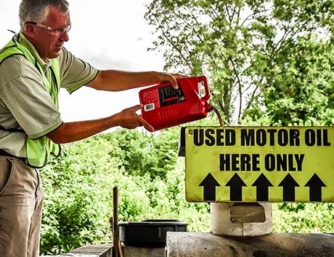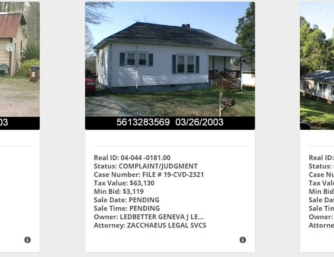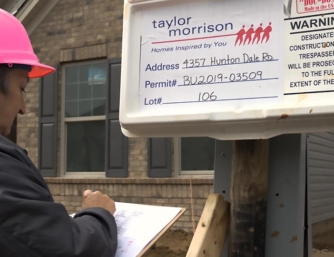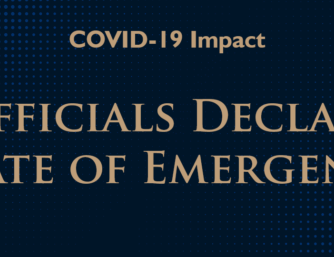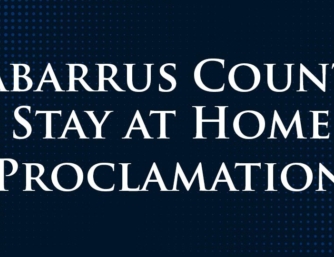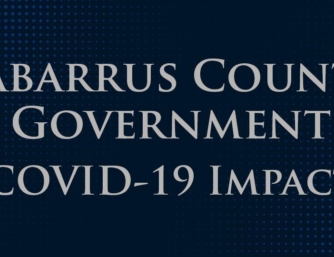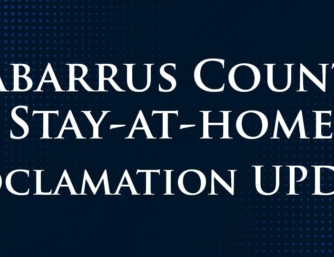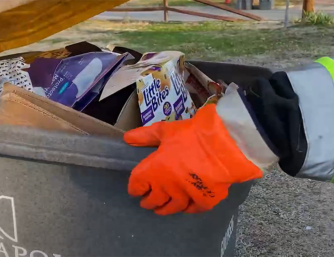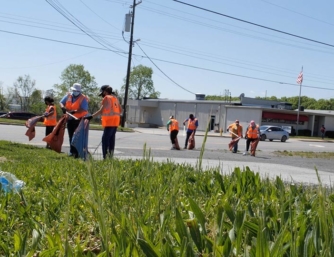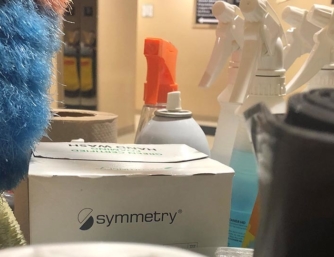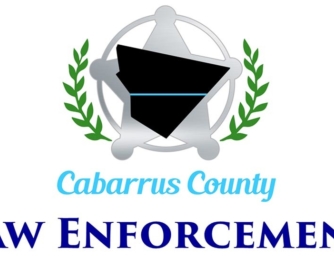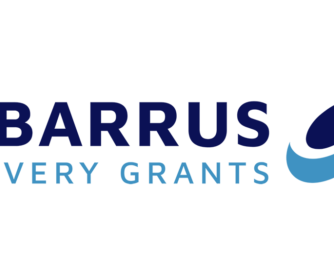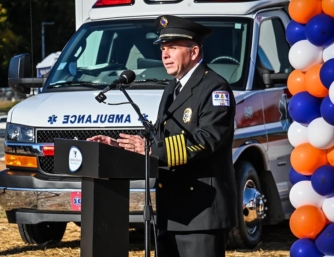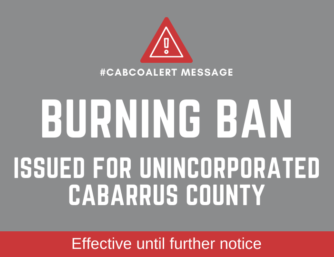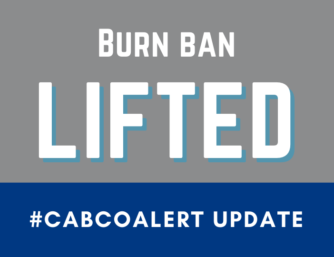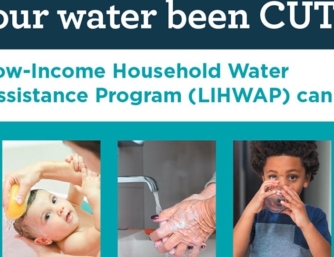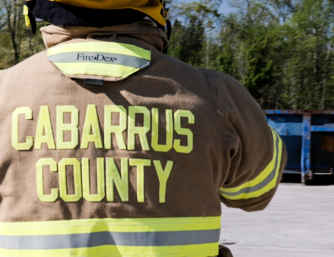Read the full Proclamation here.
View a FAQ on the Stay at Home Proclamation
Today, elected officials with Cabarrus County, the cities of Concord and Kannapolis, and the towns of Harrisburg, Midland and Mt. Pleasant announced a Stay at Home Proclamation for residents that will take effect March 26 at 5 p.m. Cabarrus County’s Stay at Home Proclamation is valid through April 16, 2020, but will be regularly reviewed and evaluated and may be revised, amended, extended accordingly, based upon existing evidence and recommendations by the Cabarrus Health Alliance Public Health Director and Cabarrus County Office of Emergency Management.
The Proclamation requires residents to remain in their homes and limits mass gatherings to groups of 10 or fewer.
The Proclamation coincides with Wednesday’s North Carolina Department of Health and Human Services (NCDHHS) announcement that a person from Cabarrus County died on March 24 from complications associated with the virus. The patient was in their late 70s and had several underlying medical conditions. A second person in their 60s, who was traveling through North Carolina, also died from COVID-19 complications in Cabarrus County.
The Stay at Home Proclamation also supports local State of Emergency declarations signed by the same jurisdictions last week and ongoing decisions to limit mass gatherings.
What the Stay at Home Proclamation means for you
The Stay at Home Proclamation is designed to continue preventing the spread of COVID-19 in our community. The Proclamation directs residents to shelter at home and limit travel outside the home beyond handling specific essential needs. County leaders will continually review the Proclamation, and it may be revised or extended based on recommendations from the Cabarrus Health Alliance and Cabarrus County Emergency Management.
According to the Proclamation, Cabarrus residents should stay at their homes, but can leave to “provide or receive certain essential services or engage in certain essential activities and work for essential businesses and governmental services.”
Essential businesses or operations include healthcare and public health operations, human services operations, essential government functions and essential infrastructure. All these functions are fully outlined in the Proclamation.
Read the full Proclamation here.
Here’s a breakdown:
Permissible
- Visiting a healthcare professional for medical services that cannot be provided virtually
- Caring for a friend or family member
- Walking pets; visiting veterinarian
- Assisting with getting supplies for another person
- Going to a restaurant for take-out or delivery
- Going to a pharmacy for medications and other healthcare needs
- Receiving deliveries from any delivery business
- Going to grocery, convenience or warehouse stores
- Exercising outdoors, while maintaining the recommended social distancing of a minimum of six feet.
Prohibited
- Going to work, unless you fall under the essential services outlined in the Proclamation
- Visiting family and friends without having an urgent need to do so
- Traveling, except when for permissible activities
- Gathering in groups
Questions regarding essential and non-essential businesses can be sent to response@cabarrushealth.org.
Practicing responsible actions; maintaining Proclamation
“The Stay at Home Proclamation does not keep you away from the goods and services that you rely on,” said Cabarrus County Emergency Manager Bobby Smith. “It calls attention to the seriousness of our COVID-19 recommendations. This is a time for our community to take responsibility to limit contact, practice social distancing and follow hand-washing and sanitation guidelines.”
Concord and Kannapolis police departments and Cabarrus County Sheriff’s Office are tasked with enforcing the Stay at Home Proclamation. Their officers will manage this through voluntary compliance, education, dialogue and cooperation from the community. The departments encourage continued voluntary cooperation from the community. They will not actively identify violations, but will investigate all reported violations and exercise their authority to issue citations and/or make misdemeanor arrests if all efforts for voluntary cooperation are exhausted.
For more information on the Stay at Home Proclamation, including frequently asked questions and a complete list of essential services, visit cabarrushealth.org and websites for the County and municipalities.
Find local resources
Cabarrus County residents can turn to the CHA for ongoing information related to COVID-19 and other public health concerns. CHA will provide updates through its website, www.cabarrushealth.org. You can also call the Health Information Line at 704-920-1213 or email healthinfo@cabarrushealth.org. Follow the CHA on Facebook and Twitter, @CabarrusHealth.
For a breakdown of local demographics and information, visit https://www.cabarrushealth.org/579/Cabarrus-County-COVID-19-Data.
State of North Carolina COVID-19 guidance
The NCDHHS recommends people at high risk of severe illness from COVID-19 stay at home to the extent possible to decrease the chance of infection.
On March 22, the Centers for Disease Control and Prevention (CDC) updated who is at high risk for severe illness. That includes:
- People aged 65 years and older
- People who live in a nursing home or long-term care facility
- People who are pregnant should be monitored since they are known to be at risk with severe viral illness, however, to date data on COVID-19 has not shown increased risk
- Other high-risk conditions could include:
- People with chronic lung disease or moderate to severe asthma
- People who have serious heart conditions
- People who are immunocompromised including cancer treatment
- People of any age with severe obesity (body mass index [BMI] >40) or certain underlying medical conditions, particularly if not well controlled, such as those with diabetes, renal failure, or liver disease might also be at risk
Many conditions can cause a person to be immunocompromised, including cancer treatment, bone marrow or organ transplantation, immune deficiencies, poorly controlled HIV or AIDS, and prolonged use of corticosteroids and other immune-weakening medications.
In addition, pregnant women should be monitored closely since they are known to be at risk for severe viral illness. However, data so far on COVID-19 has not shown increased risk for severe COVID-19 illness in pregnant women. While children are generally at lower risk for severe infection, some studies indicate a higher risk among infants.
Governor Cooper has taken several actions to protect the health of North Carolinians, including:
- Ordering all K-12 public schools in North Carolina to close through May 15
- Banning gatherings of more than 50 people
- Limiting bars and restaurants to only take-out or delivery service
- Restricting visitors to long-term care facilities
- Promoting social distancing by closing businesses like movie theaters, gyms, nail salons, and several others.
For more information and additional guidance, please visit the CDC’s website at www.cdc.gov/coronavirus.
What the State of Emergency Declaration means to you?
The State of Emergency announcement made on March 19 does not impact daily functions of government and private services agencies, including:
- Private and public electric, water, gas and internet service providers will continue normal operations
- County and city services, including garbage, recycling, stormwater, and water and sewer systems, and social and veterans services will continue normal operations.
- Public safety departments, including police, fire and EMS, are staffed at normal levels and available when needs arise
Last week, local agencies began implementing changes to events and operations of the public library system, and park and recreation departments to meet federal and state guidelines on mass gatherings. Other announcements about non-essential services may be forthcoming from the individual entities.
What can you do?
This is not a natural disaster, such as a hurricane or winter weather. Your ability to obtain food, water or other necessities is not in jeopardy. Make practical purchases for your household’s needs. A sensible way to help our most vulnerable populations is to avoid stockpiling or hoarding and leave supplies on shelves. Residents should also heed recommendations about social distancing.
For more information, visit the following sites:
Copyright ©2024 Cabarrus County







